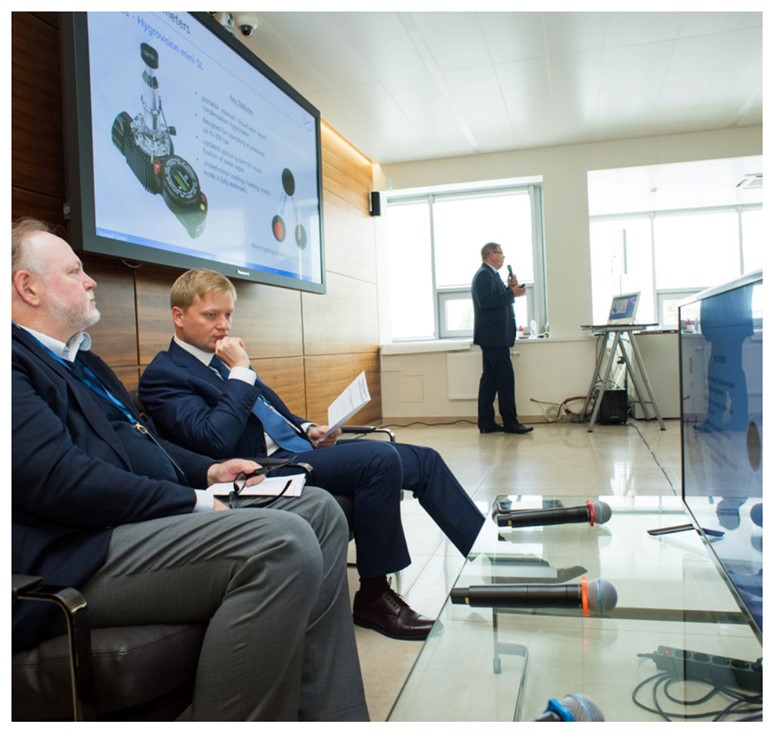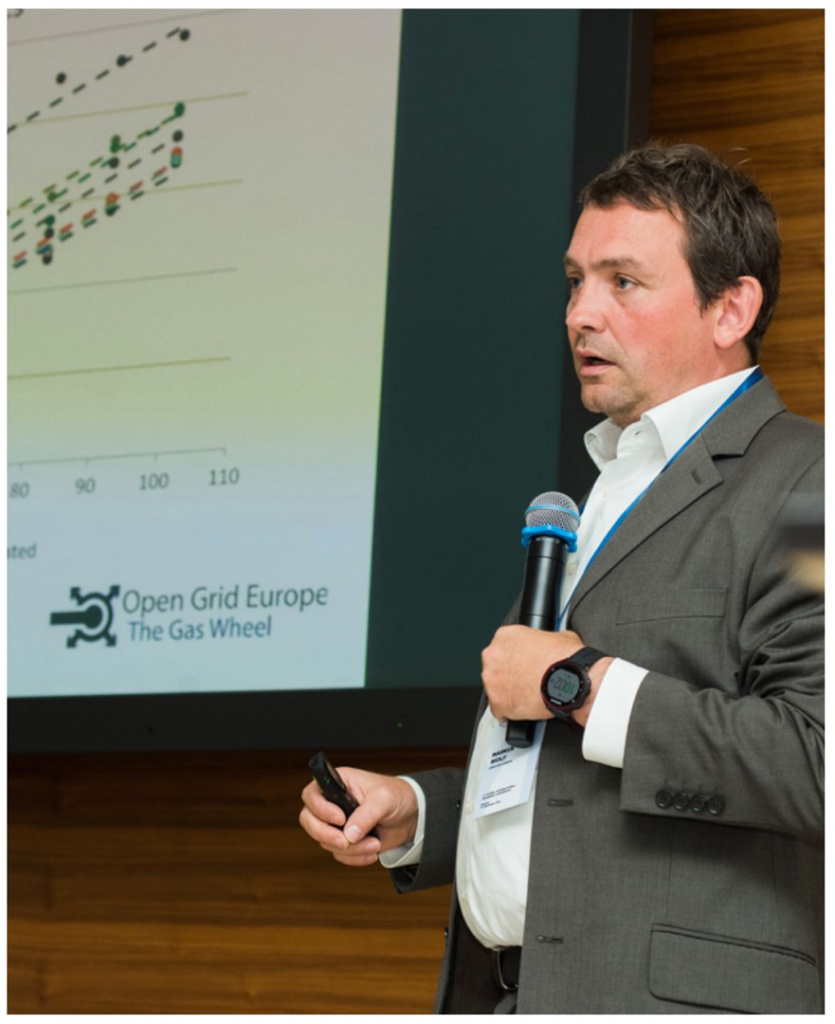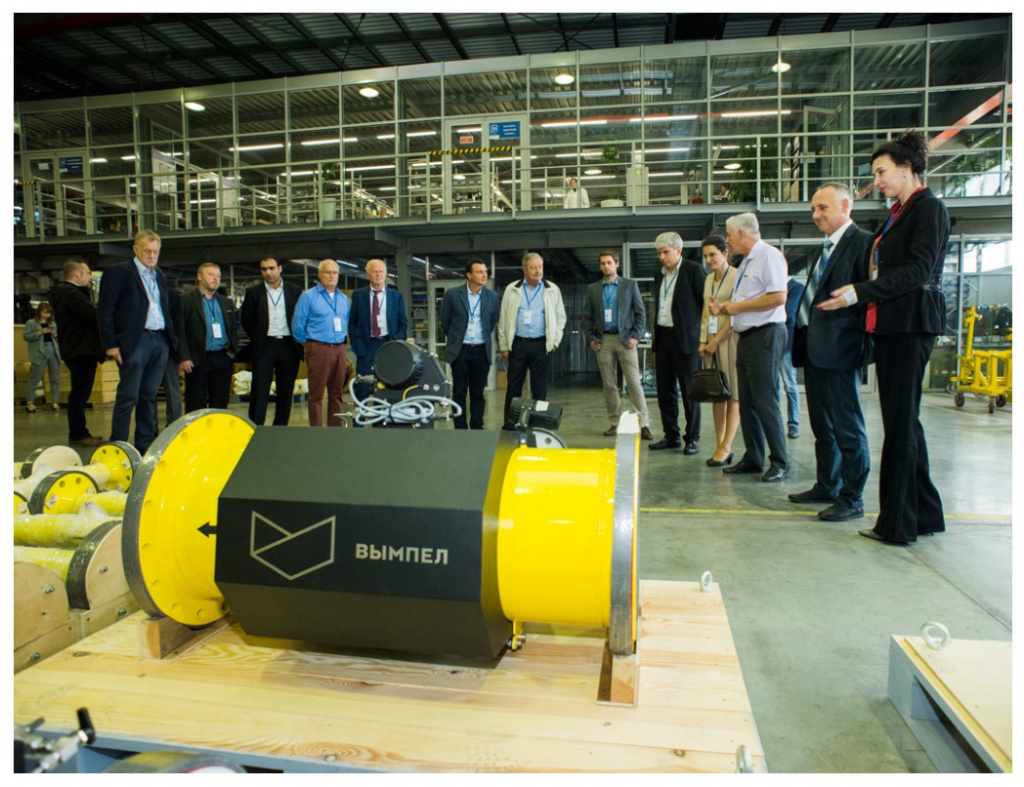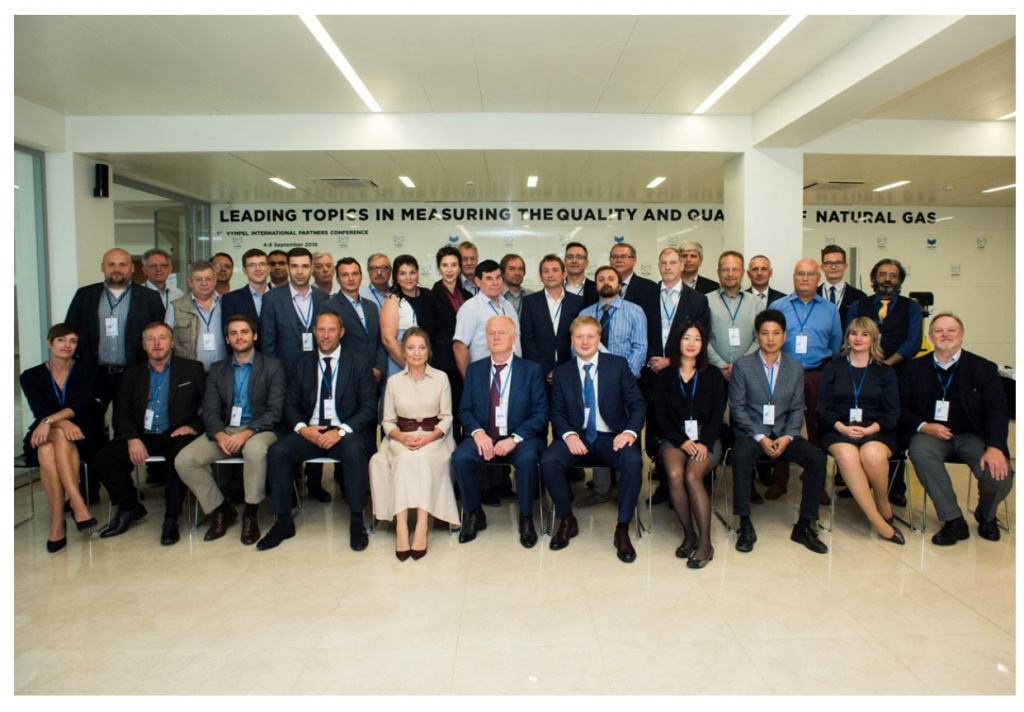Hydrogen Energy, Machine Vision, Mems Technologies at the International Vympel Partners Conference
On September 4-5, the International Vympel Partners Conference dedicated to promising technologies in the field of gas quality control and flow measurement was held. The conference took place at the SPA Vympel complex in Dedovsk, Russia near Moscow. As a center for scientific as well as product research and development, this manufacturing facility was the perfect venue for an event attended by leading experts from 13 countries. The participants represented scientific and research laboratories, manufacturers of analytical and measuring equipment, system integrators and gas pipeline companies.

This was not the first time that the Vympel facilities have served as a venue for a major international event. Two years ago, in September 2017, a meeting of the MDK Operating Committee for Industry, Innovation and Future Development was held here. That meeting was timed to coincide with the thirtieth anniversary of SPA Vympel.
This year, international representatives of the Vympel Group member company, Vympel GmbH (Germany), were the organizers of the conference.
The genesis of the event was a response to the numerous inquiries and requests from scientific and research laboratories – National Physical Laboratory (NPL) in the UK, Open Grid Europe (OGE) and Gascade in Germany, VSL in the Netherlands, to name just a few – to develop new technology and instrumentation for the support of research in the context of existing European programs in the gas industry.
The conference brought together leading experts from Germany, Italy, India, China, Iran, Denmark, the UK, the Czech Republic, Slovakia, Romania, Belarus and other countries. Participants from Russia represented the “D.I. Mendeleyev Institute for Metrology” (VNIIM), the “All-Russian Scientific Research Institute for Physical-Engineering and Radio- technical Metrology” (VNIIFTRI), the “All- Union Scientific Research Institute of Natural Gases and Gas Technologies” (VNIIGAZ), and Gazprom, PJSC.
The conference opened with a report presented by S. V. Seleznev, Ph.D., the Director of the Gas Quality Department at SPA Vympel. In his report, Dr. Seleznev spotlighted new developments in technology and on-going international projects.

One of the developments highlighted was the result of a successful joint project with Gasunie, the Dutch gas pipeline company. In partnership with Gasunie, comparative testing of the CONG Prima-10C analyzer was carried out. This instrument is the first on-line unit capable of directly measuring hydrocarbon liquid content. It was installed to take measurements in parallel with GACOM gravimetric equipment, where it successfully demonstrated its ability to report reliable measurements that are comparable to those of the GACOM.
The representatives from Gazprom, PJSC were particularly interested in information presented about the FAS-SW aluminum oxide humidity sensor. This new device can measure dew point in the range from -100°C to +60°C. At the moment, it is the only domestic sensor of this type.
Markus Wolf, Head of the Gas Quality Department at Open Grid Europe, reported on the challenges faced by Gas Pipeline Companies to achieve harmonized measurement of the hydrocarbon dew point. In his report, Dr. Wolf presented information about the implementation of a method for transferring a harmonized calibration standard for registering the hydrocarbon condensation temperature from the primary standard to analyzers in the field. It was noted that Vympel’s Cong Prima-10 analyzer was used as a secondary standard in this process.
During the conference, the issue of hydrogen as an energy source was addressed. Currently, there is no single point of view regarding use of the existing gas pipeline network for hydrogen transportation. Gazprom, PJSC and Gascade are considering adding 10% hydrogen to natural gas. This will significantly reduce atmospheric emissions of carbon dioxide. At the same time, the OGE laboratory regards such mixing as deleterious to the turbines of gas pumping units and is working on applications that use 100% hydrogen.
The LiveEO Company (Germany) presented a report on how satellites can be used to monitor gas pipelines, a system that incorporates machine vision algorithms.
Kevin Ayling, the Managing Director of Diteco (the UK), presented a report on the modern analysis of hydrogen sulfide in gases. Diteco is Vympel’s partner in the UK, where the two companies are partnering to bring new technology to offshore platforms in the North Sea, serving companies such as Shell and Chrysoar.
Dr. Mikhail Vinge, the scientist steward of the primary humidity standard in the Russian Federation and a representative of VNIIFTRI, reported on the progress in development of a technique for gas moisture analyzer calibration via remote access. Implementation of this technique will minimize inspection time and operating costs.
It is proposed that the Hygrovision-BL be employed as a secondary reference standard, taking advantage of the built in microscope to make visually confirmed measurements remotely. A feature of this system is its ability to transmit video images of the condensation process via a secure communication channel. SPA Vympel plans to test this system before the end of 2019.

Andrej Wolf of Qmetreg (Germany) presented a report on a new gas chromatograph characterized by carrier gas micro-consumption based on MEMS technologies. An innovative feature of this chromatograph is its ability to use small volume cylinders for the carrier gas, which will significantly simplify servicing. This chromatograph is planned for incorporation into a new Vympel product – a complete solution “compact gas quality unit”.
Dr. Radek Strnad of the Czech Metrological Institute reported on new research in high- pressure gas humidity measurement. In a presentation focused on flow metering, D. N. Zhuk of Gazprom Transgaz Belarus, JSC (GTB) gave a report on GTB’s experience with serially installed ultrasonic gas flow meters. Another flow metering presentation was given by Marco Hutteman (Force Technology, Denmark), in which he revealed “Some Secrets of Gas Flow Meter Calibration”.
The Sentin company (Germany) is the developer of nondestructive inspection solutions using AI and machine vision algorithms. Arkadius Gombos, cofounder of Sentin, gave a presentation focusing on the current capabilities of artificial intelligence algorithms – 97% accuracy of image recognition. These technologies are planned for application in the Hygrovision Proline project – an analyzer in which the eyes of an experienced specialist will be supplemented by a computer. This system will automatically detect unwanted impurities in the gas, such as glycol, and will distinguish between different types of condensed hydrocarbons by characteristics in the optical properties of condensation patterns.
In summing up his reflections about the conference, G. A. Derevyagin, the General Director of SPA Vympel, noted the high level of technical innovation in the solutions presented in the reports and the active involvement of the participants in open-forum discussions.
Dusseldorf, Germany, where Vympel GmbH is located, was proposed as the venue for the next conference.

